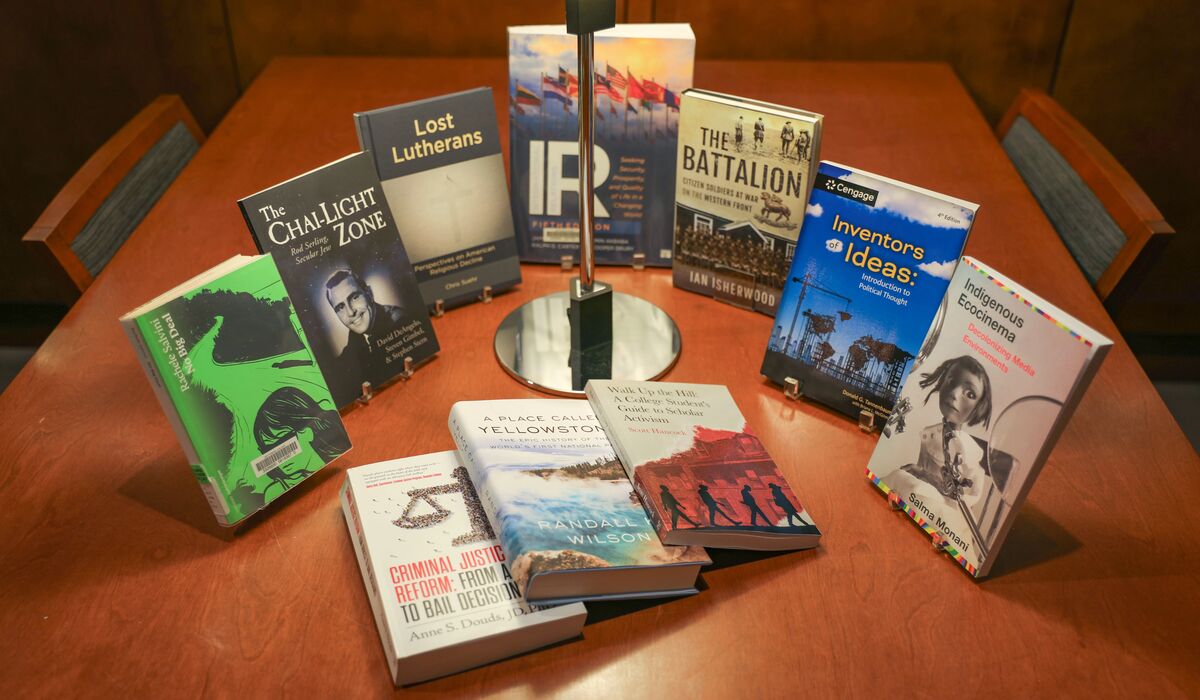
Gettysburg College faculty contribute to their fields of study with the publication of books that demonstrate their passion for research and involve scholarly collaborations with Gettysburg alumni.
During the 2024-2025 academic year, Gettysburg College professors showcased their commitment to advancing knowledge in their respective areas of scholarly interest with the publication of 12 major works.
- “International Relations: Seeking Security, Prosperity, and Quality of Life in a Changing World,” Fifth Edition, by Political Science Prof. Yasemin Akbaba
- “Criminal Justice Reform: From Arrest to Bail Decisions” by Public Policy Chair and Public Health Policy Co-Chair Anne S. Douds, Juliette Rhinow ’25, Troy Ayado ’25, Ethan Wilt ’23, and Autumn Chassie ’23
- “The Chai-Light Zone: Rod Serling, Secular Jew” by Philosophy Prof. Steve Gimbel, Jewish Studies Chair Stephen Stern, and David DeAngelo ’23
- “Walk Up the Hill: A College Student’s Guide to Scholar Activism” by Africana Studies and History Prof. Scott Hancock
- “The Battalion: Citizen Soldiers at War on the Western Front” by Interdisciplinary Studies Prof. Ian Isherwood
- “Indigenous Ecocinema: Decolonizing Media Environments” by Environmental Studies Prof. Salma Monani
- “Bocacalle: Curso de Español Intermedio” by Spanish Prof. Christopher Oechler, Spanish Prof. Gabriella Escobar Rodríguez, and Spanish Prof. María D. Fernández Pérez
- “No Big Deal” and “Oklahoma Bestiary” by English Prof. Rachele Salvini
- “Lost Lutherans: Perspectives on American Religious Decline” by Religious Studies Prof. Chris Suehr
- “Inventors of Ideas: Introduction to Political Thought,” Fourth Edition, by Political Science Prof. Emeritus Donald Tannenbaum
- “A Place Called Yellowstone: The Epic History of the World’s First National Park” by Environmental Studies Prof. Randall Wilson P’20
Learn more about these books edited, researched, and written by our faculty scholars and alumni.
“International Relations: Seeking Security, Prosperity, and Quality of Life in a Changing World”
By Political Science Prof. Yasemin Akbaba
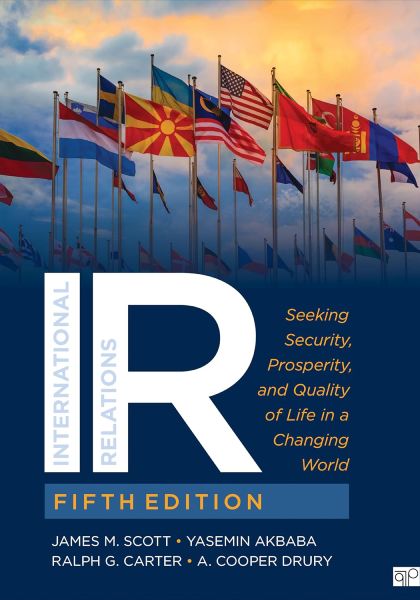
“‘International Relations: Seeking Security, Prosperity, and Quality of Life in a Changing World’ is structured to guide students systematically through the core components of international relations (IR). It presents a comprehensive approach to understanding world politics through the lens of security, prosperity, and quality of life in a rapidly evolving global environment.
“IR has been more than a major or a field of study for me. IR was my unwavering choice, a focus I pursued as an undergraduate major and as my primary field in graduate school. Authoring an IR textbook has been a dream since holding my first IR textbook in my Introduction to IR course.
“To be invited by renowned IR scholars and exceptional teachers like James M. Scott, Ralph G. Carter, and A. Cooper Drury to join this project was very meaningful. I am deeply grateful for the invaluable mentorship my co-authors provided.
“This project is particularly meaningful to me as it offers another avenue to connect with students, both in Gettysburg and beyond.”
– Political Science Prof. Yasemin Akbaba
“This was an already established volume, so we had a great foundation to build on. Working on this textbook presented unique challenges compared to other academic projects that I have been part of. The need to make advanced ideas accessible and engaging for a nonexpert audience, without sacrificing intellectual rigor, was our priority.
“This project also pushed me beyond my specific research agenda which is at the nexus of international security and religion. While my work is grounded in IR, its scope is narrower than this book. I undoubtedly grew as a scholar and teacher in the process.
“Being in a learning space with my students is a profound privilege. I recognize the significance of this period in my students’ lives. I deeply value their daily displays of curiosity, wisdom, understanding, and kindness. This project is particularly meaningful to me as it offers another avenue to connect with students, both in Gettysburg and beyond.”
— Political Science Prof. Yasemin Akbaba
“Criminal Justice Reform: From Arrest to Bail Decisions”
By Public Policy Chair and Public Health Policy Co-Chair Anne S. Douds, Juliette Rhinow ’25, Troy Ayado ’25, Ethan Wilt ’23, and Autumn Chassie ’23
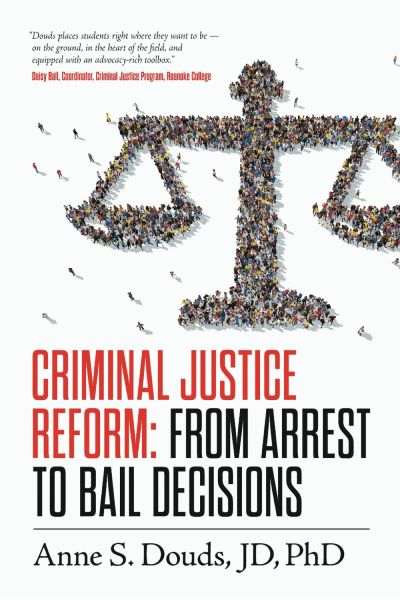
“This is volume one of a three-part series on key areas of criminal justice practices and efforts to improve those practices. This first volume focuses on the earliest stages of the CJS, from initial interactions with law enforcement through bail hearings.
“Each chapter opens with a summary of a high-profile event related to the policy that is the subject of the chapter. Each chapter then summarizes the history and evolution of that policy and the current state of that policy at federal, state, and local levels.
“Finally, each chapter ends with experts’ ideas for reform and how those reforms can be implemented at community levels. For example, there are chapters on crisis intervention teams, no-knock warrants, fines and fee practices, and school violence.
“I appreciated how passionate the students, now alums, were. They took this project as an opportunity to do research and to really think about how that research can be translated into action.
“I love the small classes, engagement in and out of the classroom, and the energy, excitement, and enthusiasm students bring to their work. I feed off of their energy.”
— Public Policy Chair and Public Health Policy Co-Chair Anne S. Douds
“The Chai-Light Zone: Rod Serling, Secular Jew”
By Philosophy Prof. Steve Gimbel, Jewish Studies Chair Stephen Stern, and David DeAngelo ’23
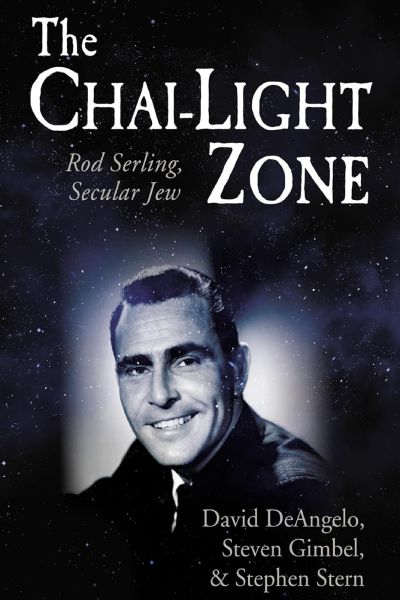
“When David DeAngelo ’23, a physics major and Jewish Studies minor (now a doctoral student in physics at Connecticut), took Introduction to Judaism with Jewish Studies Chair Stephen Stern, he used ‘Twilight Zone’ references in his papers and exams. David has been a lifelong superfan of the series.
“Rod Serling, the series’ creator and primary writer, was a secular Jew, and what David noticed was the way in which Serling’s Jewishness was an essential element in his writing. Over the next three years, David took more Jewish Studies classes with Prof. Stern and my Jewish Comedy class, and then a series of independent research courses with us where we explored and developed discussions of Jewish themes in ‘The Twilight Zone.’
“Ultimately, we were able to collect these, and by adding a couple more, create a book-length manuscript that looks at the life of Rod Serling and a wide swath of episodes he wrote for ‘The Twilight Zone’ and interpret them through a Jewish lens to see the moral lessons he was trying to teach us.
“This is the sort of endeavor that Gettysburg makes possible. It is an interdisciplinary book weaving together Jewish studies, philosophy, history, physics, literary analysis, and humor studies.”
– Philosophy Prof. Steve Gimbel
“This book creates a deep appreciation for the way that popular culture, what we think as silly entertainment, can contain profound insights into ethics and the human condition.
“Serling was a World War II veteran, who joined the Army to fight Hitler—although Serling was stationed in the Pacific. After the war, he found he could not stop the fight, as American racism was the cousin of Nazi antisemitism. The networks would not let him produce stories about racism. So as not to offend racists who were watching, he had to disguise his moral messages inside of fantasy and science fiction, seeking to appeal to the American conscience indirectly but still changing the country for the better.
“This book epitomizes what I love so much about Gettysburg College. Prof. Stern took the time to really get to know David, and as a result, knew that David’s interest in physics meant that I needed to be a part of the conversation, too.
“Second, this is the sort of endeavor that Gettysburg makes possible. It is an interdisciplinary book weaving together Jewish studies, philosophy, history, physics, literary analysis, and humor studies. The essence of Gettysburg is to encourage us to be intellectuals, not mere technicians, to seek insight and wisdom without concern for shallow turf wars. This book represents the best of Gettysburg College.”
— Philosophy Prof. Steve Gimbel
“Walk Up the Hill: A College Student’s Guide to Scholar Activism”
By Africana Studies and History Prof. Scott Hancock
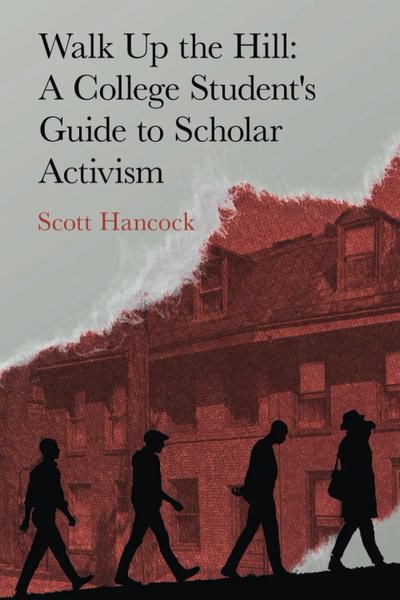
“The book seeks to provide college students with conceptual and practical tools for combining sound, evidenced-based scholarship and activism. Though the primary lens is history, via a variety of Black Americans’ work to build a more just and equitable society, it’s an interdisciplinary approach that connects past and present.
“Researching the story of the Southern Negro Youth Conference was inspiring. This group of mostly college-aged Black students in the 1930s modeled how to come alongside a community of people, such as Southern textile workers, and learn from them while putting the skills and knowledge they were acquiring in college to help make a tangible difference in people’s lives.
“The intellectual stimulation of talking with students in and out of the classroom is the best part of teaching at Gettysburg College. The learning never stops for me, and hopefully won’t ever for them.”
— Africana Studies and History Prof. Scott Hancock
“The Battalion: Citizen Soldiers at War on the Western Front”
By Interdisciplinary Studies Prof. Ian Isherwood
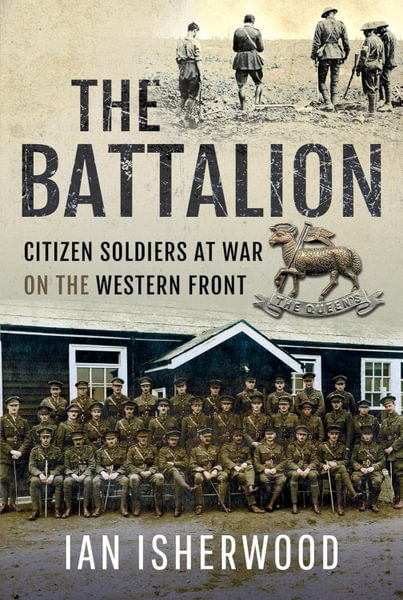
“‘The Battalion’ is the story of one unit in the British Army—the 8th Queen’s—who fought in the trenches’ western front in the First World War from 1915 to 1918. They were a unit made up of citizen-soldiers who endured the terrible conditions of that war but continued fighting until the bitter end. It is a story of leadership, military transformation, morale, and shared humanity in a dehumanizing war.
“In writing this book, I am trying to tell the story of the experience and history of the First World War though the eyes of those who fought it. This book became my version of Band of Brothers, the story of a unit comprised of real flesh-and-blood people who went through a shared experience.
“The most interesting thing about the book is that it came out of an archival collection donated to the college by my former student, Marco Dracopoli ’14, and his family. That collection became the basis of the College’s oldest and most successful digital history projects, The First World War Letters of H.J.C. Peirs. The book is dedicated to the Dracopolis and to our digital history team.
“I find my students to be inspirational. Every single concept in this book was workshopped in the classroom before I wrote it. I also greatly appreciate collaboration with my colleagues on the Peirs project. They also workshopped every aspect of this book, kept me on task, and made sure that I didn’t let the side down. It was a team effort!”
— War and Memory Studies Prof. Ian Isherwood
“Indigenous Ecocinema: Decolonizing Media Environments”
By Environmental Studies Prof. Salma Monani
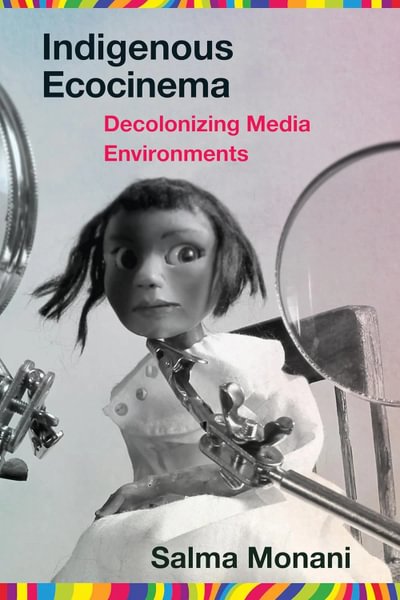
“This book asks, ‘What can we learn when we consider how Indigenous cinema attends to environmental issues?’ While there is lots of work in cinema studies, it’s only in the 21st century that there’s been attention to the intersections between cinema and environmental issues. At the same time, scholarship on how Indigenous people use cinema is a recent development. Bringing these two strands of recent scholarship together, this book offers ways to understand the practice and theory in what can be termed ‘Indigenous ecocinema.’
“Its case-study focus is on Canada, particularly the work emanating from the imagineNATIVE Film + Media Arts Festival in Toronto, the largest Indigenous film festival in the world. I showcase contemporary Indigenous filmmakers and media creatives to consider how their film practices, both on and off screen, help us think about long histories of Indigenous ecological relations, the ways colonial systems have often ruptured such relations, and how, despite this, many Indigenous communities today offer remarkable insights that bind ecological sensibilities into contemporary living.
“The research for this book has spanned well over a decade. Over this time, it has been so interesting to see how Indigenous-made cinema has really come into its own, especially in Canada, which recently even instituted a nationally funded Indigenous Screen Office.
“What’s fantastic about witnessing this evolution is that even as Indigenous cinema goes ‘mainstream,’ many Indigenous creatives continue to work to deliberately weave environmental and social justice sensibilities into their production practices. In many ways they are providing models for how the cinema industry as a whole can be more conscious of its impacts on land and labor.
“I love how many students at Gettysburg College express a desire to contribute to a better tomorrow, not just for themselves but for our collective communities. I so appreciate how my students embrace the challenge—and relatedly the joys—of engaging with difference, and as a consequence, how they grow their ability to think and act with empathetic intent and an understanding of the liberal arts mindset, which involves interdisciplinarity and holistic thinking.”
— Environmental Studies Prof. Salma Monani
“Bocacalle: Curso de Español Intermedio”
By Spanish Prof. Christopher Oechler, Spanish Prof. Gabriella Escobar Rodríguez, and Spanish Prof. María D. Fernández Pérez
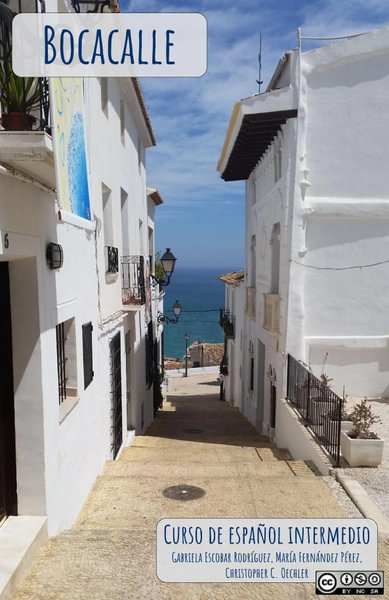
“‘Bocacalle’ is an intermediate-level textbook designed to accompany our SPAN 201 course. It follows on the heels of two other open textbooks, ‘Ventanas Abiertas’ and ‘Ventanas Abiertas II,’ created by me, Spanish Prof. María D. Fernández Pérez, and Barbara Sommers. Cova Arroyo García was an additional author of ‘Ventanas Abiertas II.’
“These textbooks were created as part of the Open Educational Resources (OER) community. We created, reused, and adapted OER materials to tailor these textbooks to our classes, instructional goals, and students at Gettysburg. The projects were supported by grant funding from different sources, including Gettysburg’s Johnson Center for Creative Teaching and Learning (JCCTL).
“It was inspiring to see how knowledgeable and talented my colleagues are and how much they care about Spanish-language instruction at Gettysburg.”
– Spanish Prof. Christopher Oechler
“It was inspiring to see how knowledgeable and talented my colleagues are and how much they care about Spanish-language instruction at Gettysburg. The textbooks are now freely available online, which means that our students no longer have to purchase an expensive textbook to learn. In fact, anyone in the world can work their way through our language sequence by using these books.
“I appreciate Gettysburg students’ intellectual curiosity and dedication to their academic pursuits. I also like that the College provides students ample opportunities to engage with different departments, programs, and the local community in their co-curricular activities.”
— Spanish Prof. Christopher Oechler
“No Big Deal” & “Oklahoma Bestiary”
By English Prof. Rachele Salvini
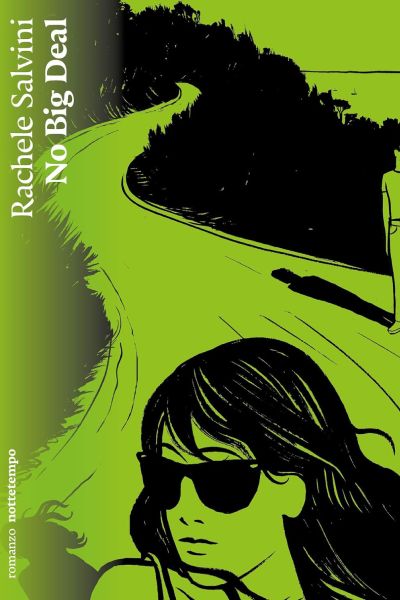
“‘No Big Deal’ is a novel set in between Italy and the United Kingdom. Lena is an Italian girl with the ambition of becoming a music critic, and Dixon is a British guitarist whose band is about to take off. Both come from difficult families; both want to find a place to call home.
‘Oklahoma Bestiary’ was the runner-up for the 2023 Quarterly West Chapbook Award. It’s a collection of five stories about Oklahoma wild animals and its even wilder people.
“While writing ‘No Big Deal,’ I learned so much about the writing process and everything that goes into the difficult, sometimes exhausting back and forth between a writer and her editor. I learned that a good idea does not always fit a story, and I learned that writing about music—about playing it, listening to it, appreciating it—is extremely difficult.
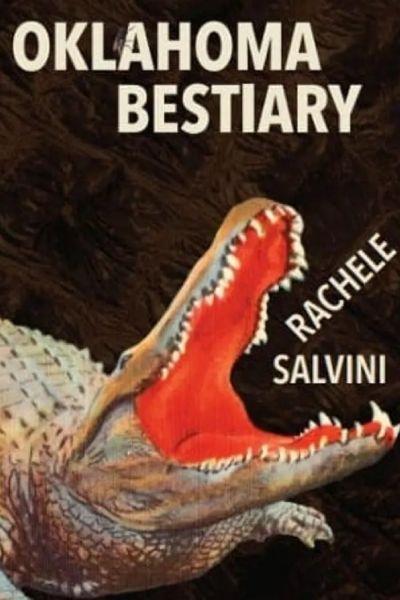
“While doing research for ‘Oklahoma Bestiary,’ I learned a lot about poaching and hunting laws in Oklahoma. I also researched a wide variety of animals. Did you know that raccoons have that black ‘mask’ around their eyes to reflect light and see better in the dark? It works just like football players putting tape under their eyes to reduce glare from the sun and enhance their vision.
“I appreciate my relationship with the students more than any other aspect of my teaching experience at Gettysburg College. They are so inspiring, creative, and talented. Throughout my time here, all the classes I taught formed a very strong bond, both with me and among the students themselves. Sharing one’s writing with a room full of strangers is a brave, vulnerable act, and the students talked about each other’s work with grace, openness, and kindness.”
— English Prof. Rachele Salvini
“Lost Lutherans: Perspectives on American Religious Decline”
By Religious Studies Prof. Chris Suehr
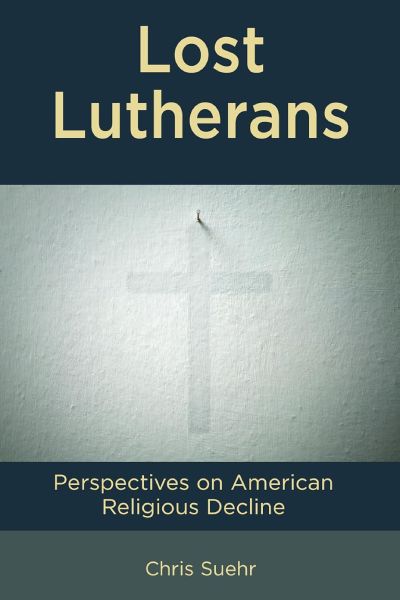
“The focus is religious change in American Christianity, particularly the Lutheran branch of Protestantism. ‘Mainline decline’ has been a field of study for a few decades, but it remains dynamic as religion intersects with society, politics, and culture.
“I interviewed people who were raised practicing their religion, but who no longer belong to churches. It was surprising how relatable their stories seem to be to many people’s experiences—even those who still attend church. They were often very willing to share, very thoughtful, and still think about their religious foundation. I also had many people in my social circles who fell outside of my study parameters but would to have interviewed as part of the study. People want to tell their stories.
“I have only been adjunct here for two semesters, but the students at Gettysburg have shown genuine interest and engagement with the religious studies courses that I have taught.”
— Religious Studies Prof. Chris Suehr
“Inventors of Ideas: Introduction to Political Thought”
By Political Science Prof. Emeritus Donald Tannenbaum
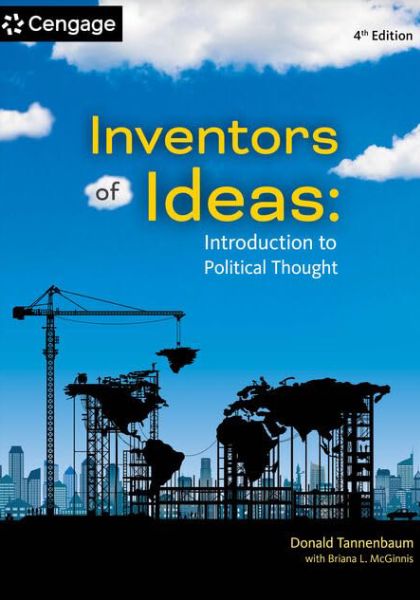
“This work covers the development over many centuries of ideas from the past that we use today when ‘doing politics’ and the great thinkers who invented those ideas, all in service of demonstrating the vital connection between contemporary political thought and practice.
“I had written the first two editions with a different co-author and revised the third edition by myself. For this fourth edition, Dr. Briana McGinnis contributed two original chapters of the book’s 20 and added numerous insights throughout. It was a very fruitful collaboration.
“I taught at Gettysburg College from 1966 to 2017, when I elected to retire. I most appreciated the students, especially those who raised challenging questions in class and elsewhere on campus and those named in the preface who assisted in the third edition.”
— Political Science Prof. Emeritus Donald Tannenbaum
“A Place Called Yellowstone: The Epic History of the World’s First National Park”
By Environmental Studies Prof. Randall Wilson P’20

Environmental Studies Prof. Randall Wilson P’20 has found Yellowstone National Park to be a fascinating place to conduct a place-based study about the legacy of the national park within the context of American society. “A Place Called Yellowstone: The Epic History of the World’s First National Park” celebrates the beauty and history of this cultural treasure in America’s National Park system.
“Yellowstone’s significance as a special place in U.S. history comes in part from the amazing events that happened there—from the creation of the world’s first national park, to the very first effort to save an endangered species (the plains bison), to the discovery of bacteria that made DNA replication possible,” Wilson said. “But it also comes from the powerful firsthand experience of visitors, who then come back home and share their new understandings of the natural world.”
Wilson has shared the treasures of Yellowstone with many Gettysburg alumni and students. Since 2004, he has taught a field course in Colorado each summer, one of Gettysburg’s only consistent field course offerings. During these explorations, Wilson has given students the opportunity to add research findings to his publications and develop ideas for their own senior theses.
“Yellowstone’s significance as a special place in U.S. history comes in part from the amazing events that happened there.”
– Environmental Studies Prof. Randall Wilson P’20
Earlier this year, Wilson was named the winner of the 2025 Barbara and David Zalaznick Book Prize in American History for “A Place Called Yellowstone.” The award, presented by the New York Historical, is presented annually to the best book of the year in the field of American history or biography.
The Los Angeles Times noted, “Wilson’s talent as a storyteller shines through in turning dry bureaucratic bumbling and crony corruption into a focus on individual exploits and entertaining tales. It makes for great reading.”
Related Links:
Edited by Michael Vyskocil
Posted: 06/30/25